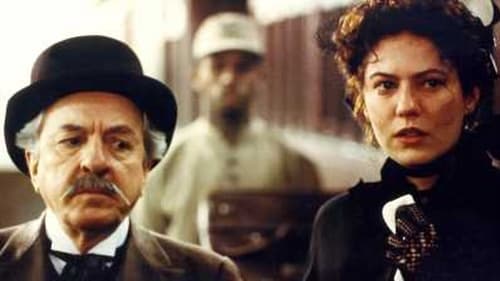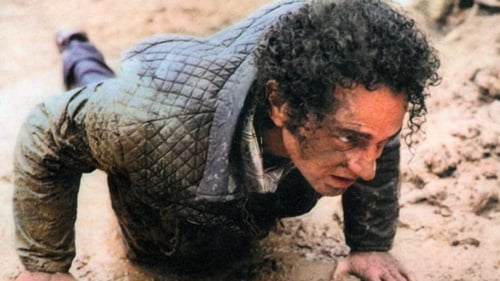Maria Silvia
출생 : 1944-02-16, São Paulo, São Paulo, Brazil
사망 : 2009-07-26

Dona Odete
A journey into the psyche of Atanásio, a doorman in Copacabana, confused while attempting to understand his desires and aspirations.

Odisséia
Four people with different values and standards meet in the urban chaos of Copacabana. Rita and Waldick come from the country, and befriend two Rio de Janeiro native guys, upon arrival: the playboy and surfer Paulo Roberto and a pimp called Tim. Written by lukejoplin@infolink.com.br

Margarida
Godofredo suffers a terrible blow when he comes back home earlier than usual and finds his wife in the arms of his partner. He sends his wife away to a coast town and dares his rival to a duel. But he begins to miss his wife and the company of his friend.

Tia
According to an Amazonian legend, every month, during the full moon, a Brazilian fishing village receives a mysterious guest: the Boto, who transforms into a human to seduce and be loved by women and hated by men. One of her conquests is the daughter of a fisherman, who has a son with the Boto. He constantly reappears to seduce her, and even when she marries, he continues to look for her. This provokes the ire of the husband, who wants to kill him anyway.

Dona-Dona
The film shows the drama of the young and fragile Lalinha. After being abandoned by her husband, who ran away with another, the girl seeks comfort on the farm where the two in-laws live and the widowed father-in-law. There, the girl discovers a new world.

Judite
Powerful magician goes to jail for creating illusion of affluence in Brazilian town.

A woman runs away in the company of her daughter, the ultimate brat, in a journey full of bizarre events.

Aparecida de Fátima
Middle-class family reform their apartment, and the noise, the contact with the workers and strange occurrences turn what was supposed to be a trivial matter into a trip to hell.

Life and death of the jesuit who fought for the peaceful relationship between colonists and the indigenous peoples of Brazil.

Lindalva
An accident at a construction site, resulting in one death, sets one worker off on a struggle for justice that exposes the mechanisms of exploitation and the class relations of a country that had undergone one decade of fast-paced ‘conservative modernisation’ at the hands of the military. As a sort of sequel to the classic The Guns (1964), following the fate of those characters as they move from enforcers of exploitation to exploited, it offers more than a snapshot of the period: the correspondent time lapses in fiction and reality capture the passage of a chunk of Brazilian history between the two films, and, therefore, also the transformations in cinematographic approaches to the social and political between the two moments. Equally daring in content and form, and in the originality of the adequacy of one to the other, it won the Silver Bear at Berlin.

The story of a poor woman living in the backwoods of Brazil and working as a maid. One day she is unfairly fired from the house where she was working and goes to the big city, facing a cruel and hostile world, working in factories, bars and bordellos.

After staying the day at the gym, eating and drinking, Carlos, a fat man, go meet his parents, Helena and Jorge, at the party they are throwing. He is drunk and end up having a fight and leaving home.

Mariazinha









